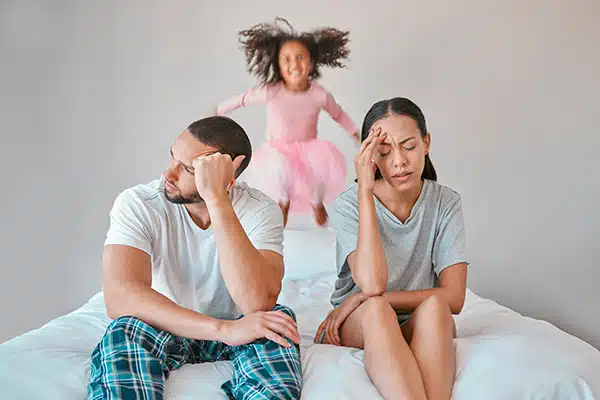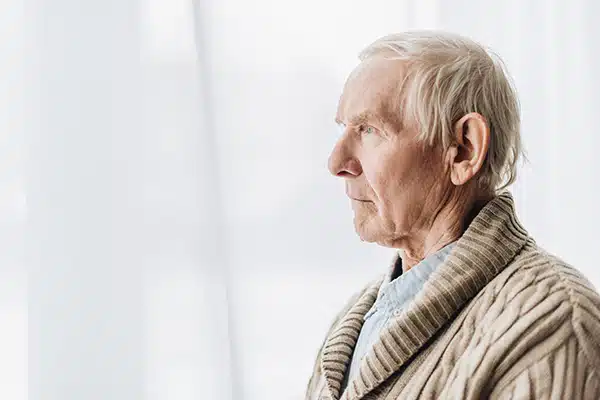Our Services
Are you or someone you know feeling mentally unwell? Mental illness can be treated and many people recover well or even completely. Psychiatrists are doctors that specialise in mental health. They make a thorough assessment based on a particular pattern of symptoms and can recommend suitable treatment
Psychiatrists - Adult & Child

Depression and Anxiety
These are the single greatest illnesses to affect people with one in four adults experiencing depression or anxiety. Are you feeling sad, lonely, apprehensive, nervous or on edge? Everyone feels this way sometimes. But some people experience these feelings daily or for no apparent reason and it interferes with everyday functioning and enjoyment. These disorders are both treatable by seeking psychiatric and/or psychological help.

Post-traumatic stress disorder
PTSD is an ongoing stress to a traumatic event. It is typically characterized by re-experiencing the traumatic event (vivid memories, flashbacks or nightmares) or avoiding situations or people that remind you of the traumatic event. This can cause significant impairment in personal, family, social or occupational functioning.

Psychosis and schizophrenia
Psychosis involves a disconnection from reality and often involves seeing or hearing things that are not real or suspecting malicious intent from other people. Schizophrenia is the most common psychotic disorder – it is a chronic disease that affects the way a person thinks, acts, expresses emotions, perceives reality and relates to others. People with schizophrenia often struggle at work and in relationships and may feel frightened and withdrawn. There is no cure for schizophrenia but it can be controlled with appropriate treatment.

Eating disorders
An eating disorder is a mental health condition that involves an unhealthy relationship with food. Common eating disorders include binge eating disorder, bulimia nervosa and anorexia nervosa. Symptoms of eating disorders include dieting, binge eating, purging (vomiting or using laxatives), excessive exercise and a preoccupation with appearance/weight. Studies have shown that approximately 1 in 7 people experience an eating disorder in their lifetime. Starting treatment early is important to avoid long term physical health consequences.

Adolescent Psychiatry
An adolescent psychiatrist is a physician who specializes in the diagnosis and the treatment of disorders of thinking, feeling and/or behaviour affecting adolescents, and their families. The adolescent psychiatrist uses the unique knowledge of biological, psychological, and social factors affecting adolescents in working with their patients. Common psychiatric conditions affecting adolescents include depression and anxiety, eating disorders and ADHD.

ADHD
Psychosis involves a disconnection from reality and often involves seeing or hearing things that are not real or suspecting malicious intent from other people. Schizophrenia is the most common psychotic disorder – it is a chronic disease that affects the way a person thinks, acts, expresses emotions, perceives reality and relates to others. People with schizophrenia often struggle at work and in relationships and may feel frightened and withdrawn. There is no cure for schizophrenia but it can be controlled with appropriate treatment.
Geriatricians

Dementia & Cognitive Impairment
These are the single greatest illnesses to affect people with one in four adults experiencing depression or anxiety. Are you feeling sad, lonely, apprehensive, nervous or on edge? Everyone feels this way sometimes. But some people experience these feelings daily or for no apparent reason and it interferes with everyday functioning and enjoyment. These disorders are both treatable by seeking psychiatric and/or psychological help.

Insomnia
Sleep disorders are fairly common in older adults. As you get older, sleep patterns and habits change. As a result, many people report trouble falling asleep, wake up frequently or have less quality sleep. Persistent sleep problems can be quite serious resulting in dysfunctional behaviour when awake, increased risk of falls and daytime fatigue. Treatment can include medication, behavioural change, sleep hygiene and psychotherapy.

Geriatric depression and anxiety
Depression and anxiety are the single greatest illnesses to affect people of any age, affecting one in four adults. There are biological, social and psychological factors affecting people as they age which can play a role in depression and anxiety- for example isolation, limited mobility, death of friends and loved ones and chronic medical conditions. Geriatricians are experienced in treating these conditions in older people – often with a combination of medication, psychological treatment and lifestyle changes.
Psychologists

Stress
These are the single greatest illnesses to affect people with one in four adults experiencing depression or anxiety. Are you feeling sad, lonely, apprehensive, nervous or on edge? Everyone feels this way sometimes. But some people experience these feelings daily or for no apparent reason and it interferes with everyday functioning and enjoyment. These disorders are both treatable by seeking psychiatric and/or psychological help.

Social anxiety disorder
Social anxiety disorder or social phobia is more than just shyness or occasional nerves. It involves an intense fear of certain social situations – particularly unfamiliar situations or those where you feel you are being watched or evaluated by others. People suffering from social anxiety disorder will often go to great lengths to avoid these situations, disrupting their life in the process. It is a very common condition although the situation that triggers it may vary. Professional psychological help can be very effective in overcoming social anxiety disorder.

Phobias
A phobia is an intense and persistent fear or an object or situation that in reality poses little or no danger. A fear becomes a phobia when they are so severe that they cause significant anxiety and interfere with a persons’ normal life. Phobias are broadly classified into three types: Specific (related to an animal, person, situation or activity- such as dentists or heights); Social Phobia or social anxiety disorder (the fear of social situations); and Agoraphobia (fear of being in public places).

Eating disorders
An eating disorder is a mental health condition that involves an unhealthy relationship with food. Common eating disorders include binge eating disorder, bulimia nervosa and anorexia nervosa. Symptoms of eating disorders include dieting, binge eating, purging (vomiting or using laxatives), excessive exercise and a preoccupation with appearance/weight. Studies have shown that approximately 1 in 7 people experience an eating disorder in their lifetime. Starting treatment early is important to avoid long term physical health consequences.
We’re Here To Help You
How It All Works
Overall introduction on the process steps outlined below.

Referral
Patients need a current referral from their GP or nurse practitioner (less than 12 months old)
[email protected]
(02) 80003 7668
Healthlink EDI: Dokotela
(02) 8569 1844
Book
Once the referral is received, Dokotela will contact the client to arrange the appointment and provide all of the necessary information.
Feel Better
A video conference is a faster way to get the help you need. Many patients find a specialist working collaboratively with their GP a faster and easier way to feel at ease and get better.
We’re Here To Help You
Meet Our Specialists
The Dokotela platform facilitates access to mental health clinicians where and when you need them. Our clinicians are independent professionals with broad expertise. Dokotela has no control over the conduct of health providers and clients who use the platform. We welcome any feedback and will pass it onto your clinician.
We’re Here To Help You
Latests Insights

Unveiling the Benefits of Online Psychiatrists in Australia

Unlocking the World of Child & Adolescent Psychiatry: Essential Guidance for Parents









